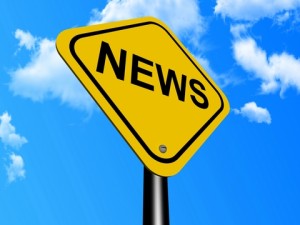 There's a book I read about two years ago called, The Information Diet: A Case for Conscious Consumption. I remembered that I liked the book and found it informative, but after two years, I've forgotten the premise and main points. Since it's a short book, and since I've gotten back into the news business, I've borrowed it from the library to read it again. I think this is an important re-read as I am fulfilling the role of creating news and content for the consumption of others.
I've already gone through the introduction, which refreshed memory that Information Diet makes the case that the consumption of news/information should be treated like how we ought to consume food. The over-consumption of food can lead to a variety of diseases, and the same can happen with a hyper-consumption of information in general, or in the over-consumption of the wrong information. As summarized in the introduction of the book:
There's a book I read about two years ago called, The Information Diet: A Case for Conscious Consumption. I remembered that I liked the book and found it informative, but after two years, I've forgotten the premise and main points. Since it's a short book, and since I've gotten back into the news business, I've borrowed it from the library to read it again. I think this is an important re-read as I am fulfilling the role of creating news and content for the consumption of others.
I've already gone through the introduction, which refreshed memory that Information Diet makes the case that the consumption of news/information should be treated like how we ought to consume food. The over-consumption of food can lead to a variety of diseases, and the same can happen with a hyper-consumption of information in general, or in the over-consumption of the wrong information. As summarized in the introduction of the book:
If unhealthy information consumption creates bad information habits the way unhealthy eating creates food addictions, then what good is transparency?... You cannot simply flood the market with broccoli and hope that people stop eating french fries. If large numbers of people only seek out information that confirm their beliefs, then flooding the market with data from and about the government will not work as well as the theorists predict.
The overall point is that it's not enough to put the good information and the good news coverage out there. You need to change behaviors as well, probably concurrently as you put out the information that's part of a healthy information diet. A point that I'd like to make about this concept is that over-consumption can lead us to a point where we aren't filtering the information to come to a logical conclusion or to weigh various sides very well. It's much like choice overload, as the act of filtering information means that you are making choices about which information is most credible, most relevant, or even the most truthful. If you have too much choice, or too much information to go through, then it's easier not to choose or to settle on ideas that confirm your beliefs or affirm what you already know or think to be true. Or, even to choose not to read any information at all.
"We choose not to choose even when it goes against our best self interests," as Sheena Iyengar says in this speech below about why people chose, or don't choose, in the first place.
Commitment to Good News Coverage
As I get back into the news industry and assess trends, study what I'm doing, and watch what competitors are doing, I need to look for a way to contribute to the information buffet and to encourage a healthful information diet. I'm not one to do what everyone else is doing, so I need to figure out what's happening and then fill in what's missing. Curation and aggregation are hot right now, but I'm not much of a fan of either. Too easy to spread information that's just incorrect while creating a system where too few people are the actual news writers and creators. It also can lead to an echo chamber where something that's wrong is shared and repeated before it's corrected. Curation and aggregation involves sharing and repurposing what other people are doing. When there's too few people, certain topics will be missed simply because everything can't be covered. When there's an echo chamber, there's also an incentive to report things that do well in the echo chamber, versus topics that need to be said and covered. I wish I had the answer to everything now. Perhaps I'll have a few more once I finish re-reading the book and work in the industry a few more months or years.

